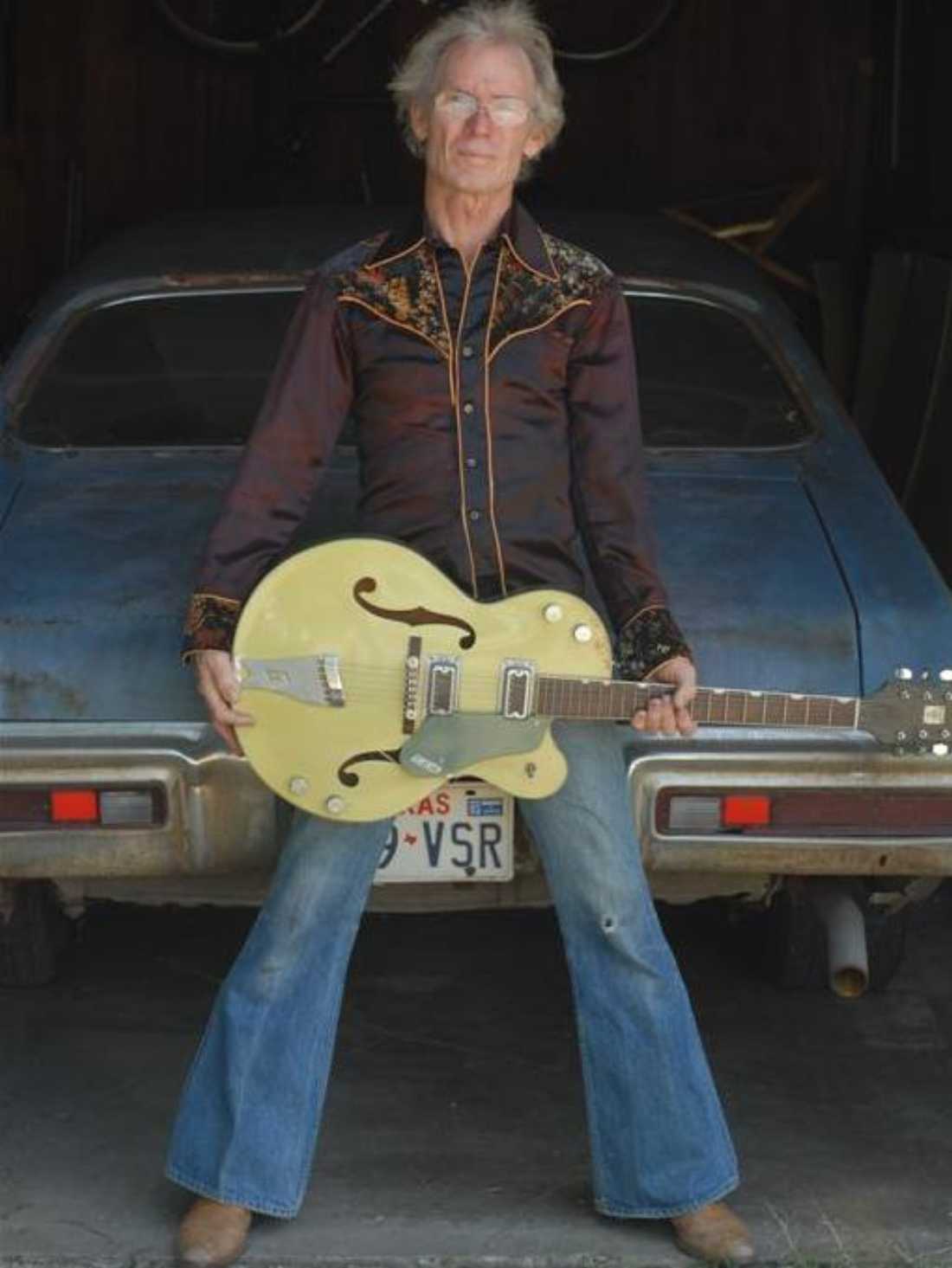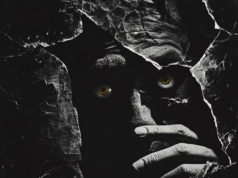James Michael Taylor’s Man That I Am
By all rights, the ultra-prolific Fort Worth singer-songwriter-actor-eccentric James Michael Taylor should be one of those local artists who’s taken for granted. With more than 500 songs and roughly 32 solo albums to his credit (more than half of those released in the last decade), Taylor, who’s around 60, is a wizened troubadour and unrepentant hippie who sings about hard-luck characters, hopelessness, determination, and the random and unexpected joys of life. He blends the plainspoken poetry of the coffeehouse with the scrappy outrage of the protest song. All of that makes him a notable and authentic musician, but it’s also well-covered territory in the fields of folk and Americana where Taylor toils.
And yet, as his latest album, Man That I Am, proves again, Taylor refuses to be predictable. His home-recorded tunes are full of ghostly choruses, abrupt instrumental interludes, a wry and cinematic flair for images and situations, and an insatiable lyrical curiosity that covers an intriguing variety of subject matter: TV shows, the Vietnam War, God, the relationship between lust and loneliness, and prescription drugs, to name just a short list. Working somewhere between the comic novelty tunes of Tom Lehrer and the misanthropic musings of Randy Newman, Taylor is a deceptively brainy songwriter with the solid musical instincts of a hit-making craftsman.
The album’s opener, “Sawtooth Requiem,” is a traditional lament for the minimum wage/hard labor life, embroidered with sterling detail (“Boss says, ‘It’s too cold to work / So I owe you no pay’ ”) and Taylor’s spoken-word delivery. “House” at first seems to be about the TV show of that name but soon reveals itself as a heartbreaking depiction of loneliness alleviated by mindless entertainment. A slightly modified version of “I Just Need a Girlfriend” could be a chart-topper for a modern country star like Keith Urban, as Taylor sings a humorous want ad for infidelity in his weary voice. (“I got a nice apartment / The Jacuzzi is free / And I’ll give you a guitar when my baby comes back to me.”)
Man That I Am also includes three instrumental tunes from the soundtrack to Dark Blood, a River Phoenix movie that was presumed lost until it resurfaced last year (“Local Artist Scores River Phoenix’s Last Movie,” Aug. 31, 2012). “Dead Zone” is the strangest and most compelling. Tayor wordlessly chants in a multi-tracked voice that mixes American Indian ritual singing with ’70s cult movie symphonics a la The Omen.
Man That I Am again demonstrates that Taylor is talented enough to be taken seriously but too damn weird to be easily classified. –– Jimmy Fowler
Fort Worth Symphony Orchestra’s Sur
Sur is an instantly accessible yet vibrant glimpse into the classical music of South America. Consisting of live recordings, the Fort Worth Symphony Orchestra’s new album follows Take Six, released early last year and highlighting the compositions of several past composers-in-residence.
Sur offers something refreshing for North American audiences and yet familiar to anyone who has popped into Bass Hall over the past 13 years. FWSO music director Miguel Harth-Bedoya, a native of Peru, has made South American classical music a regular part of the orchestra’s programming since his arrival.
As part of his efforts to promote that music here, Harth-Bedoya founded Caminos Del Inka, a record label and ensemble that performs music from the parts of South America that were influenced by the Incas. Sur is the label’s seventh release.
On the easy-listening side we find the Three Chilean Aires by Enrique Soro, Peruvian Rhapsody by Claudio Rebagliati, and Little Suite by Adolfo Mejia of Colombia.
Much more interesting is Retablos Sinfonicos, which roughly translates to “symphonic sacred paintings.” Here composer Garrido-Lecca uses traditional Peruvian dance forms to bring listeners a dynamic picture of life in that country. At times playful and rhythmic, at other times introspective and deeply religious, the music, like Peru, is always somehow both European and indigenous American in temperament.
Colors of the Southern Cross is Sur’s most intriguing and intellectually complex work. Ebbing and flowing from accessible harmonies to more dissonant treatments, the music is emblematic of Argentine composer Esteban Benzecry’s penchant for melding contemporary European and traditional South American musics.
Many of the composers featured on this album were and continue to be successful because of their talent for synthesizing the cultures of Europe and America into their work, a talent that the Fort Worth Symphony Orchestra appears to share. –– Edward Brown












